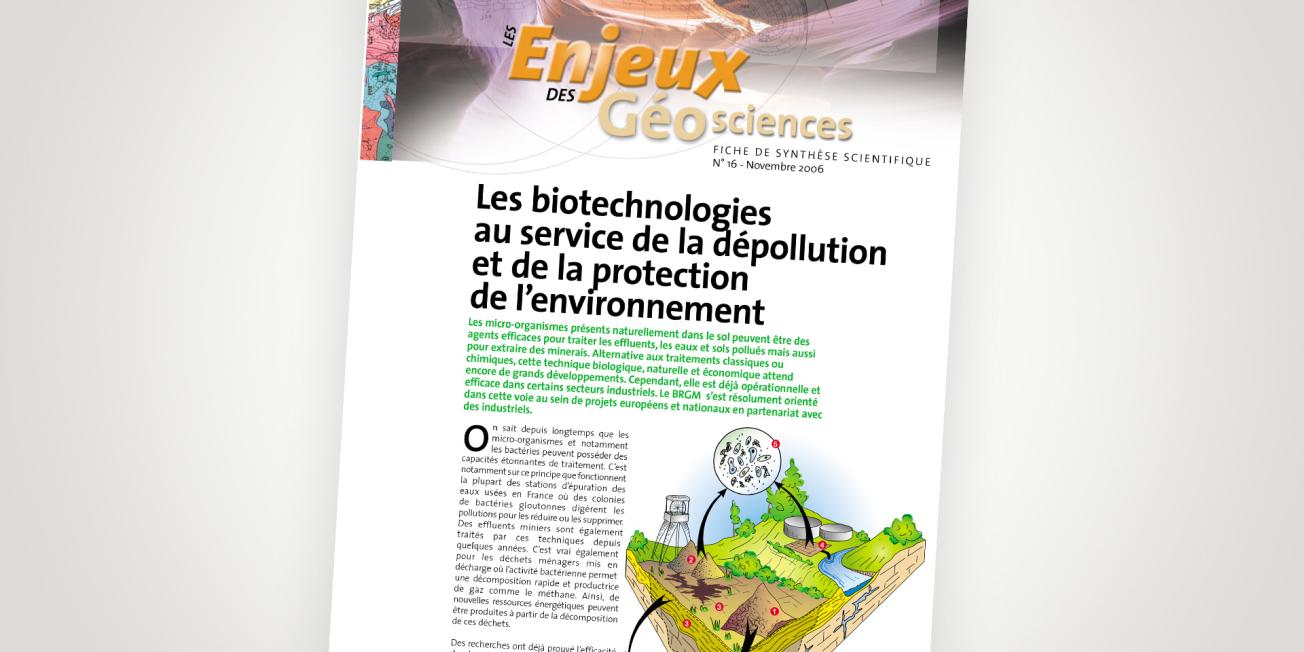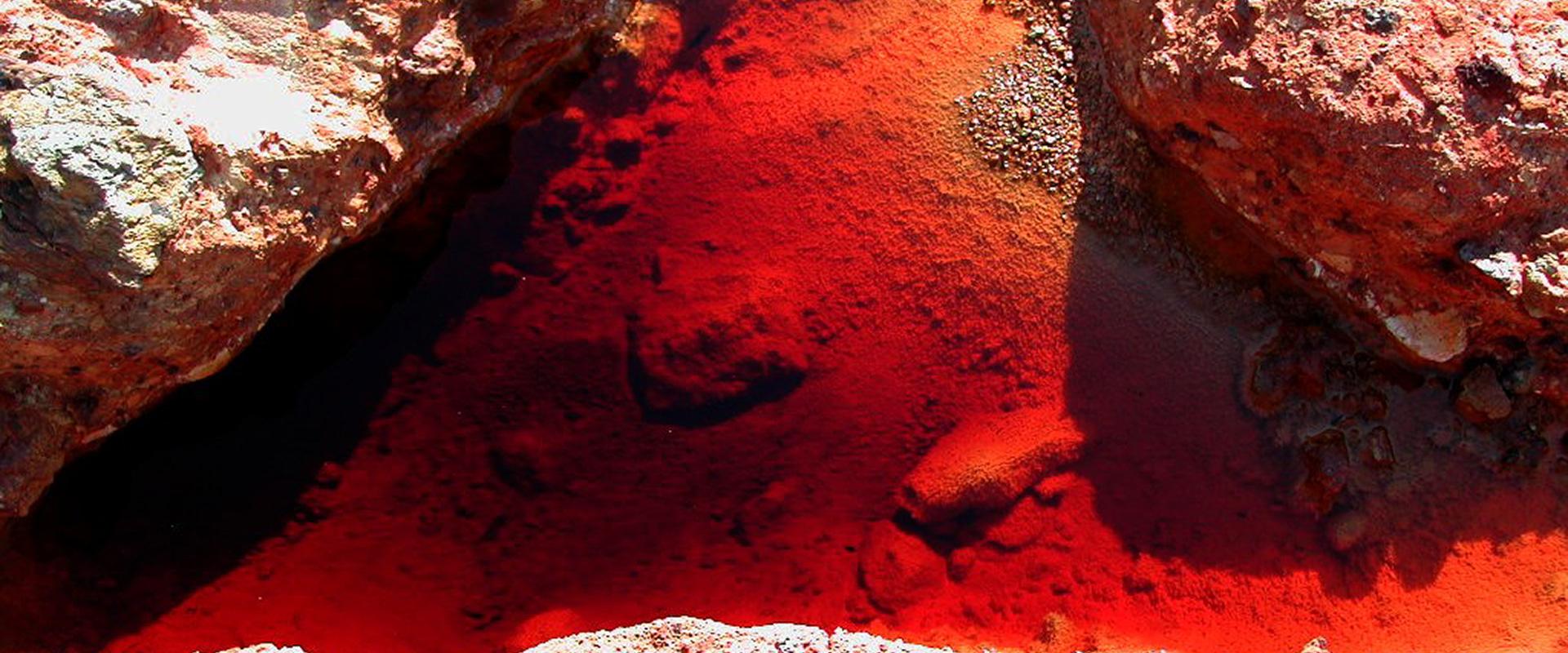
Cover of the thematic file.
© BRGM
It has long been known that micro-organisms, especially bacteria, can have amazing processing capabilities. This is the principle on which most waste water treatment plants in France operate, where colonies of ravenous bacteria digest pollution to reduce or eliminate it. Mining effluents have also been treated by these techniques for many years now. This is also true for household waste in landfills, where bacterial activity allows rapid decomposition, producing gases like methane. Thus, new energy resources can be produced from the breakdown of such waste.
Research has already proven the effectiveness of bacteria in the biodegradation of phenol, cyanide, hydrocarbons, pesticides and the removal of arsenic and heavy metals. But other prospects are emerging in the fight to reduce the impact of CO2. For instance, hydrocarbons extracted in oil drilling are "contaminated" by CO2 and H2S, which must be separated using costly and polluting techniques. Biological techniques used on site, within the resource itself, would significantly alleviate such problems. Meaning that these "natural" techniques have a bright future ahead of them.







